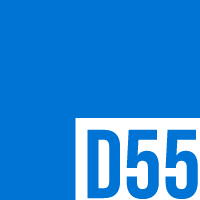Businesses should get greater clarity on whether their software falls within the scope of the EU’s AI Act – and whether their uses of it will be prohibited under the legislation – from a new consultation exercise that has opened, an expert has said.
Dr. Nils Rauer of Pinsent Masons was commenting after the European Commission invited businesses that provide or deploy AI systems, as well as a range of other stakeholders, to complete questions relating to the definition of an AI system and the prohibited AI practices established in the EU AI Act.
The EU AI Act has been dubbed the world’s first AI law. The legislation came into force earlier this year and provides for a new risk-based system of regulation of AI systems and their uses, as well as for general-purpose AI (GPAI) models. The rules will take effect in stages over the months and years ahead.
Whether businesses providing or deploying AI systems are in scope of the new regulatory regime will depend on whether those systems fall within the definition of AI systems provided for in the EU AI Act.
The term is defined as meaning “a machine-based system that is designed to operate with varying levels of autonomy and that may exhibit adaptiveness after deployment, and that, for explicit or implicit objectives, infers, from the input it receives, how to generate outputs such as predictions, content, recommendations, or decisions that can influence physical or virtual environments”.
Rules that prohibit certain uses of AI systems entirely will be among the first to take effect under the EU AI Act, from 2 February 2025. Examples include using AI systems to purposefully manipulate or deceive; for the untargeted scraping of facial images; exploiting vulnerable people; or categorising people to their detriment.
Rauer said that, as with all newly enacted pieces of legislation, the EU AI Act comes with plenty of room for interpretation. No case law has been handed down yet to provide steer and no administrative orders have been passed. Anna-Lena Kempf, also of Pinsent Masons, said, though, that “Article 56 of the EU AI Act obliges the AI Office to develop and publish so-called Codes of Practice on or before 2 May 2025” and that the Commission is equally tasked with “providing more clarity by way of guidelines (Article 96) and Delegated Acts (Article 97)”.
Against this background, the Commission said it wants stakeholders to share “explanations and concrete cases” as part of their responses to its questionnaire to help make the guidelines that will be developed from the consultation exercise more practically useful. Those guidelines are to be adopted in early 2025, it said.
“The objective of the guidelines is to provide consistent interpretation and practical guidance to assist competent authorities in their enforcement actions as well as providers and deployers subject to the AI Act in their compliance actions with a view to ensuring consistent, effective and uniform application of the prohibitions and understanding of what constitutes an AI system within the scope of the AI Act,” the Commission said.
The Commission’s consultation is open until 11 December 2024.








